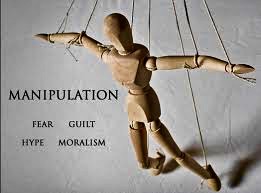
Rebutting the Presumption of Undue Influence
Grosseth Estate v Grosseth 2017 BCSC 2055 was a claim for resulting trust and presumption of undue influence that was dismissed by the court that found that the presumption of undue influence had been rebutted.
The deceased died at age 96 without children, leaving his will to be divided equally amongst his 11 nephews and nieces.
Prior to his death he spent the last 10 years of his life living with the defendants, to whom he gave the lions share of his estate.
Various nieces and nephews contested these purported gifts and argued that the presumptions of resulting trust and undue influence applied, so that the purported gifted funds should be returned to the estate.
The court reviewed the evidence and found that both the presumptions of resulting trust and undue influence had been rebutted, primarily on the basis of an independent witness.
The evidence was that the deceased lived happily with the defendants for the last 10 years of his life in a self-contained suite in their home, and became a member of their family and a grandfather figure to their children.
The court found that the deceased on his own volition contributed approximately $157,000 towards the purchase of a commercial building with an asking price of $180,000. The defendant say that he did so on his own without any prompting from themselves.
There was approximately $60,000 left in his estate to the nieces and nephews.
The deceased lived largely rent-free in their basement for most of the 10 years.
The attitude of the deceased was that he would rather provide his money to the defendants, in honor of their years together as a family, rather than leave his estate to nieces and nephews who he barely knew and who had never shown much interest in him.
The court found that the nature of the relationship with the deceased and the defendants gave rise to the common law presumption of undue influence that seeks to assure that gratuitous transfers are free from the taint of manipulation or coercion.
The deceased was of advanced years when the transfers are made, and was living in a situation of some dependency on the defendants, that had they wished, they could have dominated him into acting to their advantage and to his own detriment (Geffen v Goodman (1991) 2 SCR 353 at 377.)
It is this potential for domination the triggers the presumption of undue influence, but the presumption of undue influence may be rebutted by evidence, director circumstantial, that establishes that the donor or entered into the transaction of his or her own full, free and informed thought ( Cowper –Smith v. Morgan 2016 BCCA 200 at p.49.)
Factors relevant to a finding of rebuttal of undue influence include:
- the lack of actual influence or opportunity to influence the donor ;
- receipt of or opportunity to obtain independent legal advice;
- the donor’s ability to resist any such influence;
- the donors knowledge and appreciation about what he or she was doing ( Stewart v McLean 2010 BCSC 64 at p.97)
The court was impressed by the evidence of an independent witness who recalled the deceased told her he was proud about having helped purchase the property, and that he had done so because the defendants had let them stay in their house and did not charge him for room and board.
The court specifically allowed hearsay evidence to be admissible on this point on the basis of prior authority such as Mondonese v Delac Estate 2011 BCSC 82, affirmed 2011 BCCA 501.
The court concluded that on the totality of the evidence, it was clear that the deceased was fully capable of managing his own affairs, and there was no evidence whatsoever to substantiate the claim that he was of diminished capacity due to age, dementia, or other causes.
As such, the court found that the transfers were gifts freely given by a man who was fully capable of making his own decisions uninfluenced by anyone.



